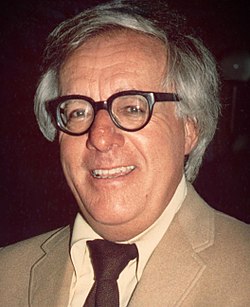Ray Bradbury Quote
The huge round lunar clock was a gristmill. Shake down all the grains of Time—the big grains of centuries, and the small grains of years, and the tiny grains of hours and minutes—and the clock pulverized them, slid Time silently out in all directions in a fine pollen, carried by cold winds to blanket the town like dust, everywhere. Spores from that clock lodged in your flesh to wrinkle it, to grow bones to monstrous size, to burst feet from shoes like turnips. Oh, how that great machine…dispensed Time in blowing weathers.
Ray Bradbury
The huge round lunar clock was a gristmill. Shake down all the grains of Time—the big grains of centuries, and the small grains of years, and the tiny grains of hours and minutes—and the clock pulverized them, slid Time silently out in all directions in a fine pollen, carried by cold winds to blanket the town like dust, everywhere. Spores from that clock lodged in your flesh to wrinkle it, to grow bones to monstrous size, to burst feet from shoes like turnips. Oh, how that great machine…dispensed Time in blowing weathers.
Tags:
time
Related Quotes
About Ray Bradbury
Ray Douglas Bradbury (US: BRAD-berr-ee; August 22, 1920 – June 5, 2012) was an American author and screenwriter. One of the most celebrated 20th-century American writers, he worked in a variety of genres, including fantasy, science fiction, horror, mystery, and realistic fiction.
Bradbury is best known for his novel Fahrenheit 451 (1953) and his short-story collections The Martian Chronicles (1950), The Illustrated Man (1951), and The October Country (1955). Other notable works include the coming of age novel Dandelion Wine (1957), the dark fantasy Something Wicked This Way Comes (1962) and the fictionalized memoir Green Shadows, White Whale (1992). He also wrote and consulted on screenplays and television scripts, including Moby Dick and It Came from Outer Space. Many of his works were adapted into television and film productions as well as comic books. Bradbury also wrote poetry which has been published in several collections, such as They Have Not Seen the Stars (2001).
The New York Times called Bradbury "An author whose fanciful imagination, poetic prose, and mature understanding of human character have won him an international reputation" and "the writer most responsible for bringing modern science fiction into the literary mainstream".
Bradbury is best known for his novel Fahrenheit 451 (1953) and his short-story collections The Martian Chronicles (1950), The Illustrated Man (1951), and The October Country (1955). Other notable works include the coming of age novel Dandelion Wine (1957), the dark fantasy Something Wicked This Way Comes (1962) and the fictionalized memoir Green Shadows, White Whale (1992). He also wrote and consulted on screenplays and television scripts, including Moby Dick and It Came from Outer Space. Many of his works were adapted into television and film productions as well as comic books. Bradbury also wrote poetry which has been published in several collections, such as They Have Not Seen the Stars (2001).
The New York Times called Bradbury "An author whose fanciful imagination, poetic prose, and mature understanding of human character have won him an international reputation" and "the writer most responsible for bringing modern science fiction into the literary mainstream".
